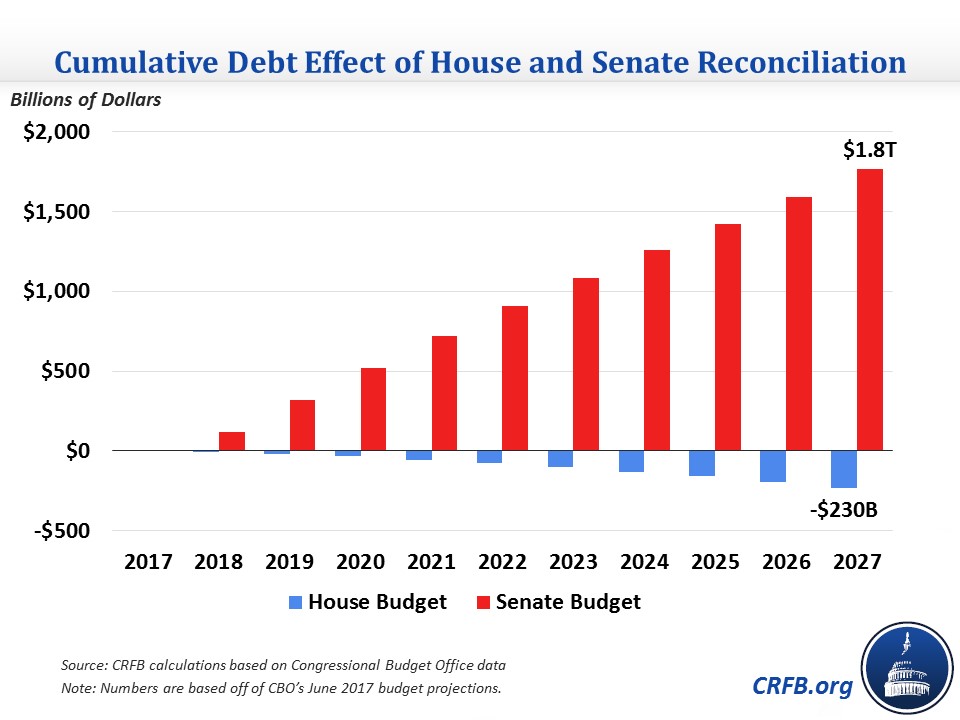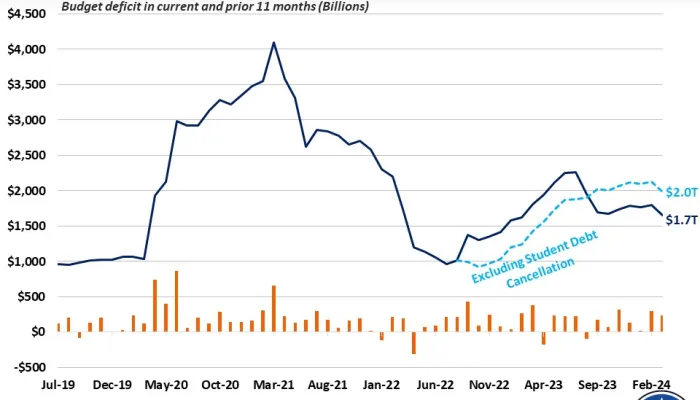Senate Budget Is More Irresponsible Than the House
The House of Representatives is expected to vote this week to adopt the Senate’s budget resolution, rather than support their own budget resolution and iron out the differences in a conference committee. The Senate budget is far more irresponsible than the House budget, and the House should not blindly accept it.
| House Budget | Senate Budget | |||
|---|---|---|---|---|
| Balances the budget in ten years |
 |
Contains enough savings on paper that there would be a small surplus in 2027 |
 |
Only achieves an “on-budget” surplus (excluding Social Security), leaving a $149 billion deficit in 2027 |
| Requires tax cuts to be offset by spending cuts |
 |
Calls for revenue-neutral tax reform. Further tax cuts must be offset by spending cuts |
 |
Calls for a tax reform bill that increases deficits up to $1.5 trillion over 10 years |
| Provides for spending reductions |
 |
Includes reconciliation instructions for >$200 billion in savings over 10 years from 11 different committees |
 |
Minimum required savings target is just $1 billion (out of $47 trillion possible spending), from one committee |
| Establishes a process to reduce deficits |
 |
Net likely impact of reconciliation instructions would be at least $230 billion savings over 10 years |
 |
Net likely impact of reconciliation instructions could be $1.8 trillion in additional deficits over 10 years |
| Offsets increased discretionary spending above caps |
 |
Increases defense spending, but by a smaller amount than the mandatory savings it calls for |
 |
Allows defense spending to be increased without offsets |
| CRFB Summary | Here | Here | ||
Analysis: How the House and Senate Budgets Stack Up
Release: A Tale of Two Budgets
The House budget’s reconciliation instructions would reduce deficits; the Senate budget’s would increase them.



